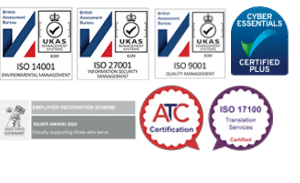You enter a medical facility, an overwhelming and unnerving experience in the midst of a pandemic. A doctor arrives to discuss your situation and treatment. To most, it is a relief having an expert perfectly explain what is going to happen and to put your mind at ease. However, because of language barriers, you don’t understand a word they say.
What can a patient do when their medical professional doesn’t speak their language?
Medical interpreting plays an important role in the treatment of non-English-speaking patients. However, given the current pandemic and safety measures in place, having a medical interpreter present is not possible.
This is an issue considering over 2 million people in the UK are non-English speaks and a further 11 million people are deaf/hard of hearing.
It has been noted that high numbers of those from ethnic minorities in the UK are contracting COVID-19. This raises the question of why. What stage of the prevention and treatment processes lets certain patients down?
While hospitals have access to remote language services such as video and telephone interpreting, aftercare can still put a patient at risk. For example, materials for prescriptions are not translated.
Of course, these services should be available during the pandemic and all future treatment for non-English speakers. However, during these times, the gaps in access to treatment, resources and information have revealed themselves. It has been very apparent that all medical advice and information should be available in multiple languages.
How DA Languages can support medical treatments
DA Languages offers a complete remote language service package. This includes:
Naturally, we have converted our clients over to using our remote services. As part of this, we train our face-to-face medical interpreters on providing services via remote channels to their usual expert standard.
All our remote services are available and capable of handling an increased demand which we have seen over the past month. Telephone and Video interpreting takes less than a day to implement with new and existing clients. Efficiency is a key focus for DA Languages during this time as we understand that waiting any amount of time can affect a patient waiting for treatment. Our aim is to make sure that patients receive treatment and support medical professionals doing their job unhindered by language barriers, therefore allowing both patients and medical teams to work together, understanding one another and ultimately providing the best treatment.
Out of all our clients currently using Video Interpreting a different language is requested 72% of the time. This means that there is a high demand for a mixture of languages for different appointments. Reflecting the diverse UK society, which is why it is important to provide a wide range of languages across all services. DA Languages provides over 450 languages and dialects including BSL.
Our top 10 most requested languages via remote services include:
- Arabic
- Polish
- Tamil
- Romanian
- BSL (British Sign Language)
- Urdu
- Kurdish/ Kurdish Sorani
- Bengali
- Pashtu
- Thai
Patients’ language rights in the healthcare sphere
The NHS is obligated to provide high-quality translations and interpreting in order to help all patients. The need for this level of equality laid out across several documents:
- European Convention for the Protection of Human Rights and Fundamental Freedoms 1950
- United Nations Convention on the Rights of the Child 1989
- Human Rights Act 1998
- United Nations Convention on the Rights of Persons with Disabilities 2005
- Equality Act 2010 (NHS England has responded to the specific equality duties in this Act)
- The NHS Constitution 2012
- Health and Social Care Act 2012
- Social Value Act 2013
- Accessible Information Standard (SCCI1605) 2016.
It is important to be aware of these documents and the standards they set for healthcare system. This knowledge allows interpreters to convey information accurately. A lack of such information can lead to missed appointments, poor aftercare and safety measures not being adhered to.
Furthermore, the guidance and standards for medical translation and interpreting inform DA Languages’ own code of conduct for our interpreters, whether this is via remote channels or face-to-face. All our interpreters strictly adhere to this code, meaning their work is of the highest-quality. During Covid-19, they are all working incredibly hard to provide as much interpreting and translation as possible in order to make sure no one is disadvantaged due to their language.
How DA Languages is helping the NHS
We understand that during this time we all need to come together. A huge part of that is keeping communication open and resources accessible to all, especially when it comes to medical information.
DA Languages currently work with over 70 NHS trusts as well as local authorities and multiple charities. All of these are doing amazing work to help the UK throughout these uncertain times. DA Languages is privileged to support these great organisations with our remote language services.
If you would like to know more about our remote language services and how we can support you email enquiries@www.dalanguages.co.uk
We’re here for you. Stay safe and practice social distancing.



